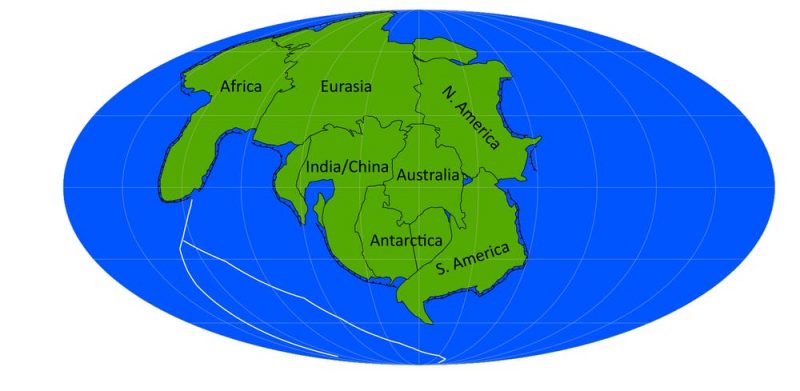[ Charles : Bible : Religion ] [ Main Menu ]
22686

From: Alan, [DNS_Address]
Subject: Countries mentioned in bible
| Small world.... |
22687

From: Eve, [DNS_Address]
Subject: Re: Countries mentioned in bible
|
IN THE GENESIS: -->About 300 million years ago, Earth didn't have seven continents, but instead one massive supercontinent called Pangaea, which was surrounded by a single ocean called Panthalassa. = IN THE GENESIS: --->“Then God said, “Let the waters under the heavens be gathered together into one place, and let the dry land appear”; and it was so. And God called the dry land Earth, and the gathering together of the waters He called Seas. And God saw that it was good.” (Genesis 1:9-10)  |
Responses:
[22689]
22689
From: Alan, [DNS_Address]
Subject: Re: Countries mentioned in bible
URL: Oldest fossils ever found show life on Earth began before 3.5 billion years ago
|
Wonderful Eve - but more recent studies have a different timescale to your old document. Life was well advanced by 300 miilion years ago. Pangaea existed about 240 million years ago. By about 200 million years ago, this supercontinent began breaking up. Over millions of years, Pangaea separated into pieces that moved away from one another. These pieces slowly assumed their positions as the continent we recognize today. Today, scientists think that several supercontinents like Pangaea have formed and broken up over the course of the Earth’s lifespan. These include Pannotia, which formed about 600 million years ago, and Rodinia, which existed more than a billion years ago. https://www.nationalgeographic.org/encyclopedia/continental-drift/ Earlier studies by Valley and his team, dating to 2001, have shown that liquid water oceans existed on Earth as early as 4.3 billion years ago, more than 800 million years before the fossils of the present study would have been alive, and just 250 million years after the Earth formed. “We have no direct evidence that life existed 4.3 billion years ago but there is no reason why it couldn’t have,” says Valley. “This is something we all would like to find out.” UW–Madison has a legacy of pushing back the accepted dates of early life on Earth. In 1953, the late Stanley Tyler, a geologist at the university who passed away in 1963 at the age of 57, was the first person to discover microfossils in Precambrian rocks. This pushed the origins of life back more than a billion years, from 540 million to 1.8 billion years ago. “People are really interested in when life on Earth first emerged,” Valley says. “This study was 10 times more time-consuming and more difficult than I first imagined, but it came to fruition because of many dedicated people who have been excited about this since day one … I think a lot more microfossil analyses will be made on samples of Earth and possibly from other planetary bodies.” |
Responses:
None
[ Charles : Bible : Religion ] [ Main Menu ]